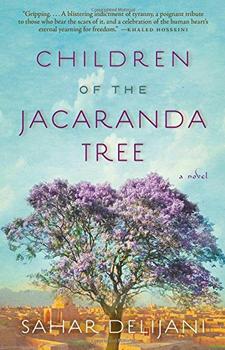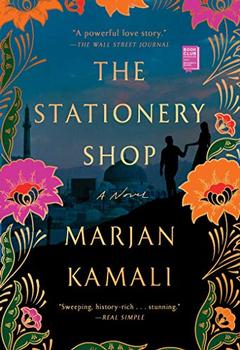Summary | Excerpt | Reading Guide | Reviews | Beyond the book | Read-Alikes | Genres & Themes | Author Bio

A stunning debut novel set in post-Revolutionary Iran that gives voice to the men, women, and children who won a war only to find their lives–and those of their descendants - imperiled by its aftermath.
We all have a tree inside us. Finding it is just a matter of time. Neda is born in Evin Prison, where her mother is allowed to nurse her for a few months before the arms of a guard appear at the cell door one day and, simply, take her away. Omid, at age three, witnesses the arrests of his political activist parents from his perch at their kitchen table, yogurt dripping from his fingertips. More than twenty years after the violent, bloody purge that took place inside Tehran's prisons, Sheida learns that her father was one of those executed, that the silent void firmly planted between her and her mother all these years was not just the sad loss that comes with death, but the anguish and the horror of murder.
Neda, Omid, and Sheida are just three of the many unforgettable characters in Sahar Delijani's startling debut novel, Children of the Jacaranda Tree. Set in post-revolutionary Iran, from 1983 to 2011, it follows a group of mothers, fathers, children, and lovers, some connected by family, others brought together by the tide of history that forces its way into their lives. Finally, years later, it is the next generation that is left with the burden of the past and their country's tenuous future as a new wave of protest and political strife begins.
Based on the harrowing experiences of Delijani, her family, and friends, Children of the Jacaranda Tree is a moving, timely drama about three generations of men and women moved by love, inspired by poetry, and motivated by dreams of justice and freedom. For fans of The Kite Runner and In the Shadow of the Banyan, it is a stunningly evocative look at the intimate side of revolution and a brilliant tribute to anyone who has answered the call of history.
Only rarely have I experienced in a book such pain and horror while at the same time experiencing such beautiful writing. Sahar Delijani has written a novelized version of 3 generations of her family in Tehran, Iran. Past and present are intertwined in extremely moving and vivid prose. I can only be grateful that writers such as Sarah Delijani are brave enough to enlighten me of the horrors that exist in so many places (Toby S.)..continued
Full Review
 (1106 words)
(1106 words)
(Reviewed by First Impressions Reviewers).
Children of the Jacaranda Tree plants its story firmly in the tumultuous landscape of Iran in the 1970s and '80s. The Shah was overthrown in the late 1970s, and political activists were full of hope for a new kind of Iran. But it was to be a fleeting hope. The new Islamic Republic of Iran threw dissenters in prison, charging them with anti-government activities. Then, in 1988, they executed many of them.
Sahar Delijani, author of Children of the Jacaranda Tree, was born in Evin prison in Tehran, Iran's capital city, in 1983. Her parents had been among the many working to overthrow the monarchy. They were secularists who wanted and hoped for a secular republic, but instead the Islamic fundamentalists grabbed complete power and Iran ...

If you liked Children of the Jacaranda Tree, try these:

by Ava Homa
Published 2021
The unforgettable, haunting story of a young woman's perilous fight for freedom and justice for her brother, the first novel published in English by a female Kurdish writer.

by Marjan Kamali
Published 2020
A powerful love story exploring loss, reconciliation, and the quirks of fate.